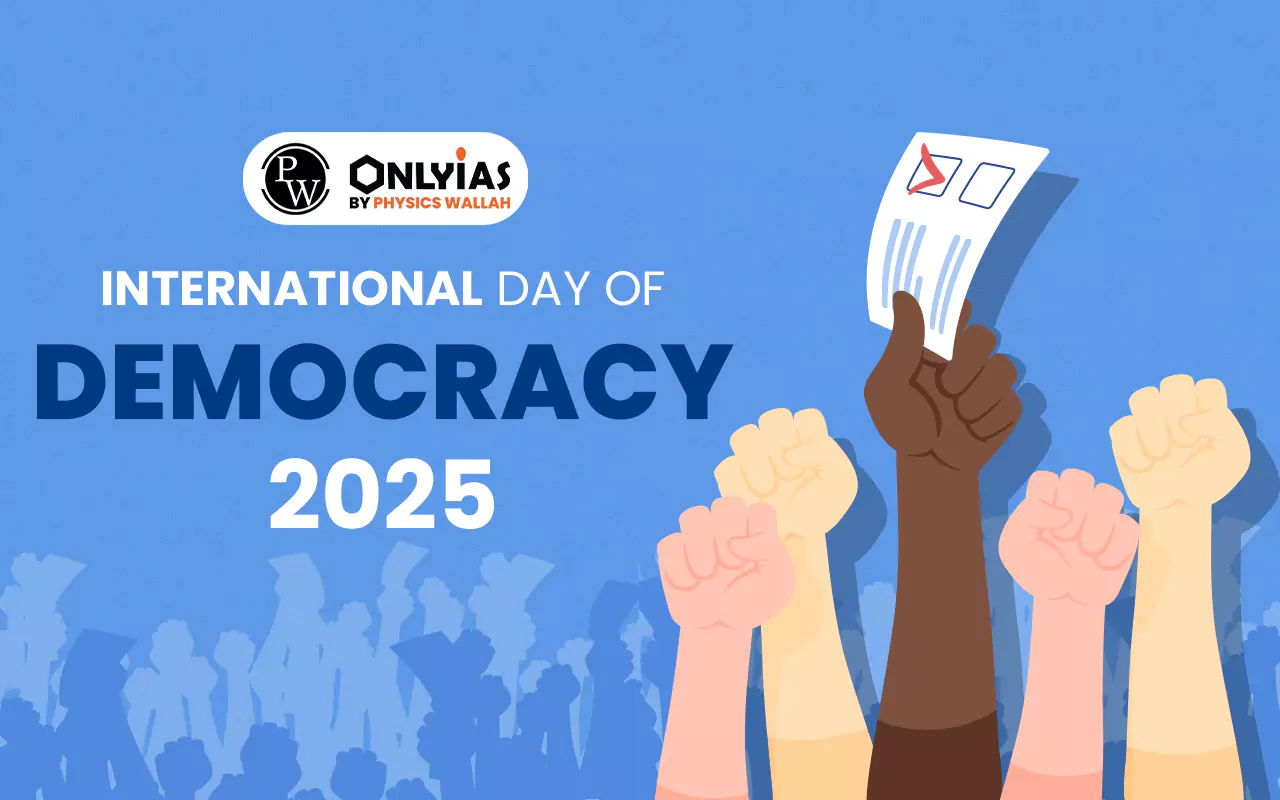International Day of Democracy 2025 will be observed on September 15 with the theme “Achieving Gender Equality, Action by Action.” Established by the UN, the day promotes democratic values like participation, accountability, and inclusion. It highlights the importance of gender equality, citizen engagement, and strengthening democratic institutions globally.

International Day of Democracy 2025 is celebrated on September 15. This day is globally acknowledged as a day to promote principles of democracy. The day was the initial initiative of the United Nations and was supported by organizations such as UNESCO.
Celebration of the International Day of Democracy aims to remind governments and citizens of their responsibility. Each individual should uphold the democratic values, including participation, accountability, and transparency. Here, we are uncovering all the important details related to the International Day of Democracy 2025. Along with this, we are also to deal with the history of the day and other important aspects.
List Of International National Days 2025 Month-Wise List
The International Day of Democracy 2025 highlights global efforts to strengthen democratic principles. It encourages citizen participation, equality, transparency, and accountability. While promoting awareness of the responsibilities of both governments and citizens.
| International Day of Democracy 2025 Overview | |
| Aspect | Details |
| Date of Observance | September 15 annually |
| Established By | United Nations General Assembly in 2007 |
| Supporting Organizations | UNESCO and other international bodies |
| Purpose | To promote democratic principles, accountability, transparency, and citizen engagement |
| Focus for 2025 | Gender equality and inclusive participation |
| Significance | Raises awareness of citizens’ rights and responsibilities, strengthens institutions, and fosters inclusion |
| Key Activities | Seminars, workshops, awareness campaigns, educational programs |
The International Day of Democracy 2025 theme is “Achieving Gender Equality, Action by Action”. This theme focuses on the practical measures to promote gender equality by:
Role Of Civil Services In A Democracy
The United Nations General Assembly established the International Day of Democracy in 2007. Its goal is to strengthen democratic institutions and practices worldwide. Since its inception, the day has highlighted the importance of:
Over the years, the observance has evolved to address contemporary challenges such as gender inequality, restricted freedoms, and limited citizen engagement. The International Day of Democracy now serves as a platform for governments, organizations, and citizens to take concrete actions that strengthen democracy globally.
The definition of democracy is a system of government where the power lies with the people. It allows citizens to participate in decision-making, either directly or through elected representatives. Democracy ensures that governments are accountable, transparent, and responsive to the needs of their citizens.
But at the same time, democracy is not only about voting. Rather, it also encompasses civil liberties, freedom of expression, and equal access to political processes. It aims to balance the interests of all citizens while maintaining law and order.
Democracy can take various forms depending on how citizens participate and how governance is structured. Understanding these forms helps in appreciating different political systems worldwide.
Understanding the difference between direct and indirect democracy helps citizens know how decisions are made. Each system has unique features, advantages, and challenges, affecting participation, governance, and accountability.
| Indirect Democracy VS Direct Democracy | ||
| Feature | Direct Democracy | Indirect (Representative) Democracy |
| Decision-Making | Citizens vote directly on policies, laws, and major decisions. | Elected representatives make decisions on behalf of citizens. |
| Participation | Requires active involvement from all eligible citizens in every major decision. | Citizens vote for representatives who handle most decision-making processes. |
| Feasibility | Practical for small populations or communities due to complexity of participation. | Suitable for large populations and complex societies where direct voting is impractical. |
| Accountability | Citizens hold direct control over outcomes and can influence decisions immediately. | Accountability is indirect; citizens rely on representatives to act responsibly. |
| Speed of Decision-Making | Decisions may take longer due to widespread consultation and voting. | Decisions can be faster as elected representatives manage governance. |
| Example | Switzerland (referendums, citizen initiatives) | India (parliamentary system), USA (presidential system) |
Listed below are the importance of the International Day of Democracy 2025. This day in the year 2025 serves multiple purposes:
Ready to boost your UPSC 2026 preparation? Join PW’s UPSC online courses today!
It is observed on September 15 every year.
The theme is “Achieving Gender Equality, Action by Action.”
Democracy is a system of government where people have the power to participate in decision-making directly or through elected representatives.
India follows a parliamentary form of democracy, where elected representatives form the government.
It promotes democratic values, citizen engagement, accountability, and gender equality worldwide.
<div class="new-fform">
</div>